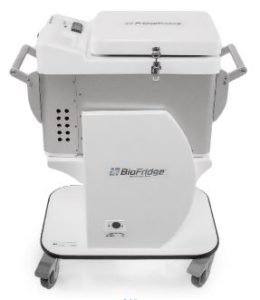Blood Donation Process: From Donor to Recipient
Blood collected at donation camps follows a unique path till it reaches the recipient. Let’s journey along with the donated blood during the 53rd National Blood Donation month. Large scale awareness as well as initiatives taken by various organizations could push more individuals towards donating blood.
Blood collected in large quantities needs to be stored effectively to avoid wastage through improper care. Blood is often considered to be ‘alive’ as it consists of living cells, hence it has to be cared for through specific ways. Let’s have a look at the procedure of blood collection, storage and transfusion.
Blood Collection
This is the first stage of the process where blood is collected from willing donors who are screened based on their eligibility to donate blood. A brief medical and physical history of the donor is collected.
The whole blood thus collected is then stored in blood bags as well as a few small test tubes which can aid in testing. After appropriately labeling the blood bag, tubes and donor details, the contents are transferred into a temporary storage unit such as a portable medical refrigerator.
Blood Processing
At the processing center, blood is often broken down into its basic components as each component requires to be stored at specific temperatures. Storing them at inappropriate temperature can damage the components. Blood components include plasma, white and red blood cells as well as platelets.
Testing of Donated Blood
Blood processing and testing often occur simultaneously. Donated blood is often tested to check the blood type as well as presence of any infectious diseases which the donor may not be aware of.
Negative tested blood moves to the next stage in the donation process where the blood that tests positive is discarded. The donor is also notified about the positive blood results.
Storage and Distribution
The blood that is passed forward from the previous stage is then moved to a semi-permanent form of storage within a pharmacy grade medical refrigerator or a freezer. Typically, this blood is stored at blood banks and is made available to hospitals for medical emergencies and transfusions round the clock.
The FDA has recommended specific storage temperatures for each of the blood components that can help retain the potency as well as shelf life of the components. Read in detail about it here.
Transfusion
The last stage of blood transportation process is transfusion. Depending upon the severity of the patient’s condition, blood component transfusion would be suggested by the doctors.
Patients suffering from certain illnesses or undergoing chemotherapy have a low blood platelet count. Others may have anemia or iron deficiency due to which they may require transfusion of red blood cells. Burns, infections and liver failure would require blood plasma transfusions.
Donated blood often comes to the aid of such individuals. Portable biomedical refrigeration units such as the ones manufactured by Biofridge help transport blood from the blood bank to the patient.
From stage one to the last stage, what keeps the blood safe is a sturdy and dependable refrigeration unit. Portable as well as plugged in medical refrigerators and freezers help reduce blood wastage by maintaining the required storage temperatures.
Portable refrigerators at Biofridge, such as the BFT 20 adhere to all the safety requirements and protocols of blood storage and transportation. They are manufactured using stainless steel which aids in their durability. The units can be attached to a cart with two stationary casters and two rolling casters that aid in blood transportation. The provision of a backup battery system provides 24 hours of operation. The external display permits the users to edit the unit’s temperature. Find additional information on the BFT 20 here.
The portable units at Biofridge are compliant with the Food and Drug Administration (FDA) regulations as well as the regulations of the Association for the Advancement of Blood and Biotherapies (AABB). They are equipped with built-in alarms that immediately notify the users in case of temperature fluctuations that occur beyond the prescribed range.
You can have a look at our products to understand which product would be best for you. You could also write to us at sales@biofridge.com or give us a call on 760-233-8847 and our representative will walk you through this process.
Source:
https://www.redcrossblood.org/donate-blood/blood-donation-process/what-happens-to-donated-blood.html



